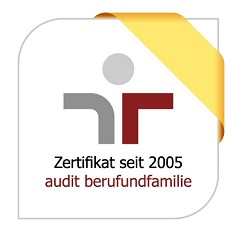PhD Student in Cancer Breaksome
Reference number: 2025-0272
- Heidelberg
- Full-time
- Functional and Structural Genomics - Junior Research Group "Brain Mosaicism and Tumorigenesis"

The German Cancer Research Center (DKFZ) is one of Europe’s largest cancer research centers. “Research for a life without cancer" is the mission of our world-class scientists and all our team members.
The DKFZ is a place where the brightest minds pursue bold ideas and seek answers to pioneering scientific questions through collaboration, innovation, and exploration across many disciplines. We provide a dynamic environment which empowers excellence with state-of-the-art technologies, cutting edge infrastructure, and a global scientific network.
Contribute your knowledge, vision, and dedication to create a space where scientific discovery in cancer research is transformed into benefits for human health.
The Junior Research Group "Brain Mosaicism and Tumorigenesis" headed by Dr. Pei-Chi Wei is seeking for the next possible date a
The Brain Mosaics & Tumorigenesis Laboratory at the German Cancer Research Center (DKFZ) investigates how the genome is shaped, maintained, and disrupted in health and disease. We are particularly interested in how replication stress, transcription–replication conflicts, and DNA repair pathways influence the formation of double-strand breaks, copy-number alterations, and other structural genome changes.
Our group combines cutting-edge genome biology approaches with quantitative, multi-omics analyses to uncover the mechanisms that generate and resolve DNA damage. We have developed and routinely apply high-resolution mapping technologies — including LAM-HTGTS for direction-resolved DNA break mapping, Hi-RepliSeq for replication timing and directionality, GRO-seq for nascent transcription, and DRIP-seq for R-loop detection. These methods allow us to integrate replication, transcription, and DNA repair features at nucleotide resolution across large genomic datasets.
We focus on cancer models (osteosarcoma, breast cancer, leukemia) and on neural progenitor cells to understand how genome instability contributes to tumor initiation, therapy resistance, and disease progression. By pinpointing cell-type-specific vulnerabilities in the genome, we aim to identify novel therapeutic targets and inform personalized treatment strategies.
Our research environment is highly collaborative and interdisciplinary, spanning genome biology, computational analysis, and translational cancer research. Members of the lab gain expertise in next-generation sequencing, genome-wide data integration, statistical modeling, and hypothesis-driven experimental design, preparing them for leadership roles at the interface of molecular biology and data science.
Your Tasks
Project Description
Replication stress (RS) disrupts DNA replication and is a hallmark of cancer. RS often leads to DNA double-strand breaks (DSBs), which can fuel genomic instability but also reveal therapeutic vulnerabilities. In collaboration with the Aqeilan Lab (Hebrew University), we aim to map RS-mediated and naturally occurring DSBs in cancer cells at nucleotide resolution.
Using advanced sequencing technologies, we will characterize DSB landscapes across osteosarcoma, breast, and leukemia cell lines and compare them with in vivo tumor models. This multi-omics approach will pinpoint cancer-specific DNA break hotspots and their association with transcription, replication dynamics, and RNA:DNA hybrid formation.
Goals of the PhD Project
- Map and classify RS-mediated and naturally occurring DSBs in distinct cancer cell types
- Integrate multi-omics datasets (DSB maps, replication timing/direction, transcription orientation, and R-loop profiles) to identify cancer-type-specific vulnerabilities
- Generate engineered cancer cell lines (in collaboration with a technician) and design hypothesis-driven analyses to identify targetable mechanisms of genomic instability
- Contribute to developing reverse-translational strategies for therapeutic interventions in osteosarcoma and breast cancer
Future Perspective
The project offers the opportunity to work at the forefront of cancer genomics using cutting-edge sequencing and integrative computational analyses. The successful candidate will gain expertise in multi-omics data integration, statistical and computational methods, and translational cancer research. Results from this work are expected to reveal new mechanisms of genome instability, inform RS-targeting therapies, and open avenues for personalized treatment strategies.
Your Profile
- Major in biology, bioinformatics, or related fields (genetics, genomics, bioengineering, applied mathematics)
- Obtained or will obtain a Master’s degree in the above fields
- (For biologists) Intermediate programming skills in R or Python and prior experience analyzing omics datasets are advantageous
- (For bioinformatic-mathematic trait) Good performance in biology courses at university
- Proficient in English (spoken and written)
- Self-motivated, committed, and capable of independent as well as collaborative work
Note: The PhD project will focus on computational and experimental analyses of cancer cell lines; animal experiments will be performed by collaborating labs.
Interested candidates should submit a CV, cover letter, academic transcripts, and contact details of two references via the online application portal. Review of applications will begin immediately and continue until the position is filled.
We Offer
Excellent framework conditions: state-of-the-art equipment and opportunities for international networking at the highest level
Access to international research networks
Doctoral salary with the usual social benefits
30 days of vacation per year
Flexible working hours
Possibility of mobile work and part-time work
Family-friendly working environment
Sustainable travel to work: subsidized Germany job ticket
Unleash your full potential: targeted training and mentoring through the DKFZ International PhD Program and DKFZ Career Service
Our Corporate Health Management Program offers a holistic approach to your well-being
Are you interested?
Then become part of the DKFZ and join us in contributing to a life without cancer!
Dr. Pei-Chi Wei
Phone: +49 6221/42-3251
Applications by e-mail cannot be accepted.
We are convinced that an innovative research and working environment thrives on the diversity of its employees. Therefore, we welcome applications from talented people, regardless of gender, cultural background, nationality, ethnicity, sexual identity, physical ability, religion and age. People with severe disabilities are given preference if they have the same aptitude.

